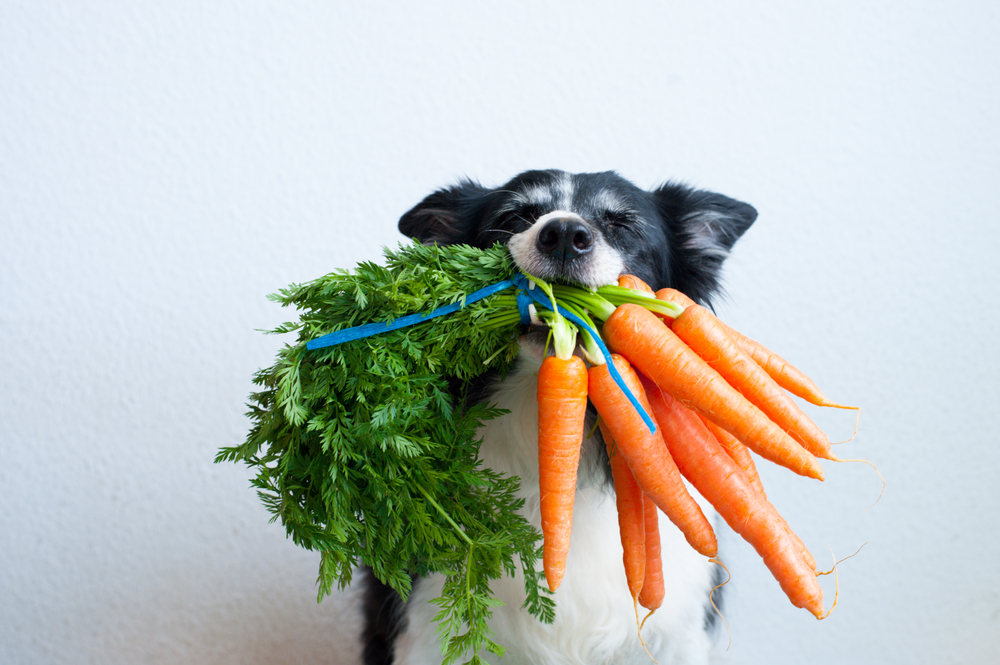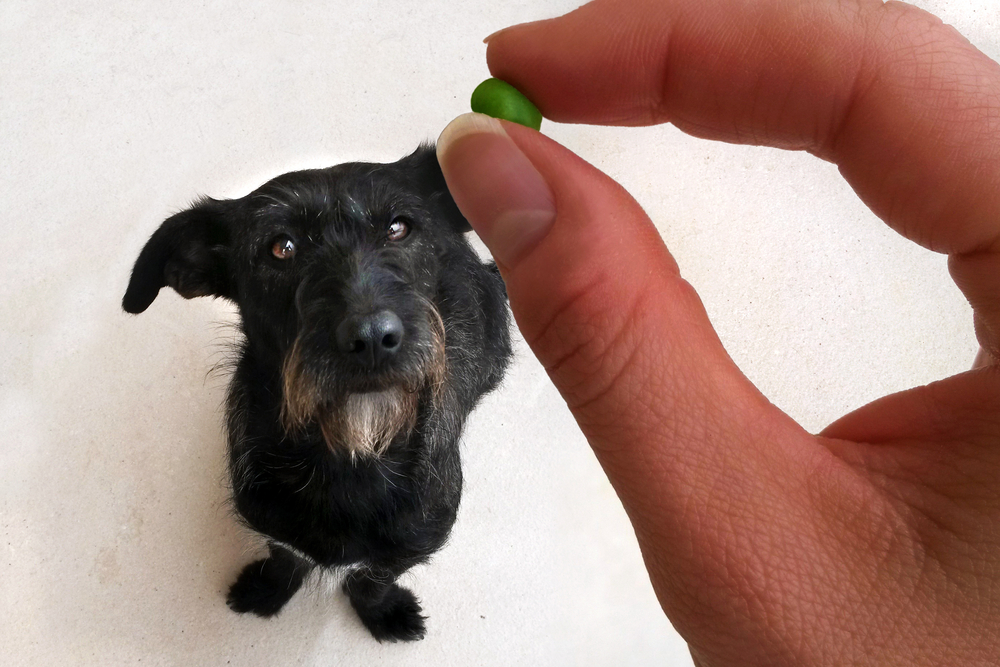It can be hard to resist letting your dog share your snack, particularly if they give you those puppy dog eyes- but do you know what everyday vegetables are potentially unsafe for dogs?
We know that the last thing that you want to do is harm your pet, so it is important to learn what is perfectly safe, and what could be dangerous. One of the most common calls that vets receive is regarding poisoning, so as a pet parent, educating yourself on potential toxic food is really important!
Read on to find out which vegetables are ok, and which should be avoided. Remember- if you are ever not sure, our team of expert vets will be happy to help answer your questions, anytime, anywhere!
Why are some vegetables poisonous to dogs?
So, you may be thinking, why are some vegetables poisonous when we eat them all the time? Whilst in many ways dogs are similar to humans, the way that dogs digest is different, meaning that they are intolerant to certain substances.
Some vegetables aren’t toxic, but still aren’t recommended as they may cause mild stomach upsets. Whilst it is important for us to remember to eat our 5 a day- dogs get what they need from a complete dog food, so whilst veg can be a tasty snack, it isn’t essential and should be given in moderation!

Can dogs eat cucumber?
Safe - Dogs can eat cucumbers. Cucumbers are very low in calories and high in water content, making them a rehydrating treat ideal for summer. As with any vegetable, stick to giving this in moderation, as larger quantities can cause a stomach upset.
Can dogs eat broccoli?
Safe - dogs can eat broccoli. Broccoli can be given to your dog raw or cooked. Broccoli is a good source of fibre and vitamin C, making it a healthy safe treat!
Can dogs eat mushrooms?
Unsafe - Dogs should not eat mushrooms. Whilst shop bought mushrooms are generally safe for dogs, other varieties are not, so it is best to steer clear of feeding mushrooms all together. Certain varieties of mushrooms are toxic, and it can be very difficult to identify the species. Symptoms of mushroom poisoning greatly vary between the type of mushroom ingested. If you are worried that your dog may have eaten a mushroom then please seek veterinary advice, you can contact one of our expert vets by clicking here.
Can dogs eat sweetcorn?
Safe - Dogs can eat sweetcorn, however, must never eat corn on the cob! Whilst sweetcorn is a good source of protein and antioxidants, corn on the cobs are indigestible and if ingested can result in blockages in the intestines. If you are worried that you dog may have eaten a corn on the cob, or is displaying any concerning symptoms such as vomiting, then please speak to one of our vets by clicking here.
Can dogs eat carrots?
Safe - Dogs can eat carrots. Carrots make a low calorie treats and can be given cooked or raw. Frozen carrots can make a great alternative to dental sticks, which are high in sugar, they can even be given frozen for a longer lasting treat.
Can dogs eat celery?
Safe - Dogs can eat celery. Celery is another low calorie option if you are looking at giving your dog a green treat. Celery has a large water content making it good for hydration, and the crunchy texture can help to act as a toothbrush. As with all vegetables, give in moderation as the last thing you want is to cause an upset tummy!
Can dogs eat peas?

Safe - Dogs can eat peas. You can feed your pet peas, the only variety that isn’t recommended are canned peas, as these are high in salt. It is worth noting, however, that peas are not recommended for dogs that have kidney problems. Peas contain a substance that when broken down forms Uric Acid, which is filtered out of the body via the kidneys. In high quantities, this can lead to kidney problems, so if you pet has an underlying kidney disease it is best to avoid peas to be on the safe side!
Can dogs eat peppers?
Safe - Dogs can eat peppers. You can give your dog bell peppers as a crunchy treat. All colours of peppers are safe to give your dog, however do not feed the spicy variety as this will upset their stomach! As with all vegetables, please give in moderation, your dog will be getting all of what they need from their complete dog food.
Can dogs eat potatoes?
Unsafe - Dogs shouldn’t eat most types of potato. Raw potatoes are a big no no for dogs. Raw potatoes contain Solanine which is toxic to dogs. Symptoms of Solanine poisoning include vomiting, diarrhoea and weakness. If you are worried that you dog has eaten raw potatoes, you can speak to one of our vets by clicking here.
When you cook a potato, the Solanine levels reduce, so plain cooked potato is a safer option. It is not recommended to feed your dog roast potatoes or chips, due to the fat content, so avoid these too!
Can dogs eat cauliflower?
Safe - Dogs can eat cauliflower. Cauliflower can be safely eaten both cooked and raw. Cauliflower can cause excess gas if eaten in large quantities, so stick to small amounts to avoid an upset stomach!
Can dogs eat onion and garlic?
Unsafe - Both onions and garlic are toxic to dogs. Onions and garlic contain a substance that breaks down dogs red blood vessels, causing dangerous anaemia. Unfortunately, this includes all of the onion family, and even dried onion powder. It only takes one onion to cause toxic affects in a dog, so if your dog has eaten an onion, or any other vegetable from the onion family, it is important to seek urgent veterinary attention. You can speak to one of our vets for advice by clicking here. The symptoms of onion poisoning are similar to those of anaemia and include weakness, pale gums and a low appetite.
We hope that you have found this article useful. Thank you for taking the time to educate yourself, your dog will thank you for it! Remember- if you need any tailored advice, please contact one of our expert vets by clicking here- no question is too small!